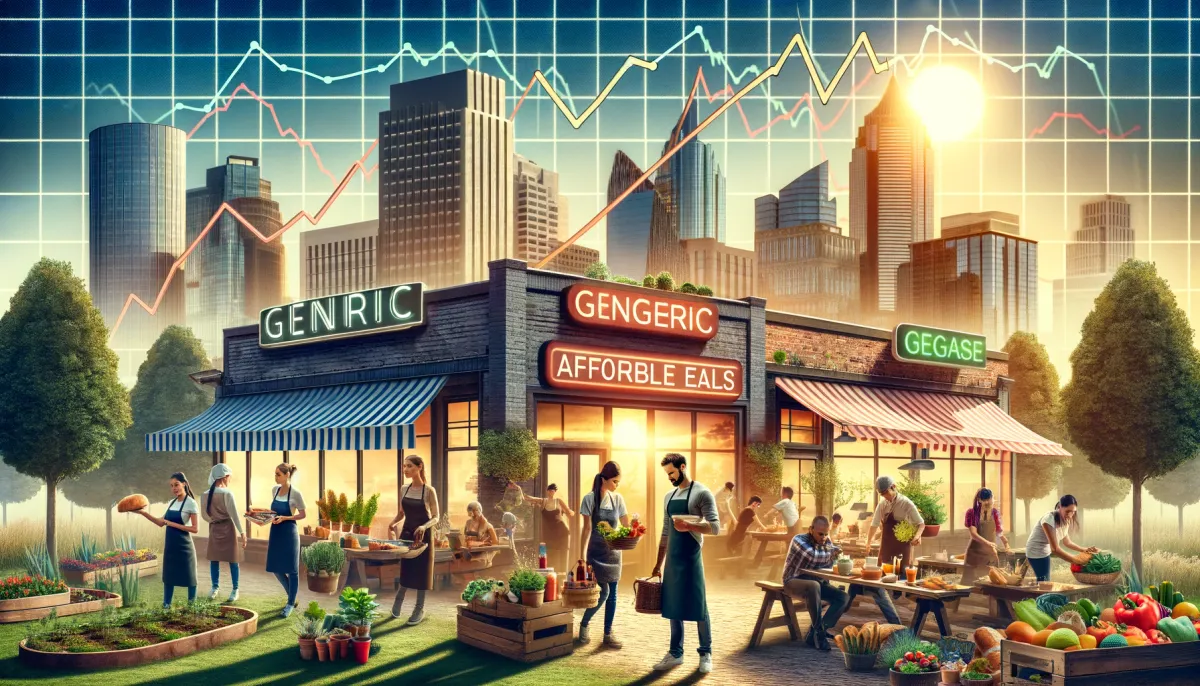The Silent Rebellion: Fast Food Wars and the Power of the Dollar

In the blistering heat of June 2024, the American economy finds itself in the midst of a quiet but profound upheaval. Fast-food chains across the board are now offering what they label as affordable adult meals. In some cases they look like kids meals without even a toy; how rude. This shift isn't born out of corporate kindness but sheer necessity, revealing the often overlooked power of the middle class. It's a fascinating dance of supply and demand, driven by the relentless engine of capitalism, where consumer choices wield more power than any political party.
For decades, fast food has been the go-to for affordability, a quick fix for the hurried worker and the budget-conscious family. But as economic pressures mount—wages stagnate and costs rise—the middle class finds itself stretched thin. Faced with this financial strain, they adapt. They spend less, choose more carefully, and collectively tighten their belts. This collective action forces corporations to lower their prices, bending the faceless behemoth of capitalism to the will of the everyday consumer.
This isn't just about cheaper burgers, tacos, or subs; it's a profound psychological shift. For too long, individuals have felt powerless within the vast machinery of the economic system. Yet now, in this moment of economic tension, the middle class rediscovers its influence. The act of choosing where to spend a limited dollar becomes a powerful statement, a quiet rebellion against economic constraints.
From a psychological standpoint, this is a form of collective self-actualization. Abraham Maslow, with his hierarchy of needs, suggested that self-actualization is the pinnacle of human development. For the middle class, recognizing the power of their collective economic choices is a step toward self-actualization on a societal scale. It’s an acknowledgment that their choices matter, that they hold the power to influence even the most entrenched economic structures.
This silent rebellion also taps into deeper philosophical currents about power and resistance. Michel Foucault, the French philosopher, argued that power is not merely held but exercised and is everywhere—woven into the fabric of our daily lives. The fast-food wars of 2024 vividly demonstrate this. Power isn't just in the hands of CEOs or policymakers; it's in the choices of everyday people. It’s a decentralized, democratized form of power, exercised through the simple act of purchasing a meal.
And this movement isn’t confined to fast food. As of July 2024, this trend is spilling over into other sectors. Snack foods are following suit, with prices for items like chips dropping from $6 to $4. Interest rates on new cars are falling, sparking hope for affordability. Yet, this cycle of lower prices leads to lower corporate profits, resulting in layoffs and reduced consumer spending. It raises a crucial philosophical question: what is a dollar worth if no one can afford to buy anything? The piles of millions and billions in the markets become meaningless if consumers cannot afford to buy the products and services that built these empires.
One of the most significant insights from this economic shift is the power of the dollar as a vote. Each dollar spent by a consumer represents a choice, a preference that influences market dynamics more profoundly than any political action. When multiplied across hundreds of millions of consumers, these choices become the most powerful force in the economy, surpassing the influence of any political party or governmental policy. The middle class’s spending decisions demonstrate that collective consumer behavior can drive significant economic change.
This summer, more people than ever are growing gardens and making bread, salsa, and other essentials at home instead of buying them. It’s a return to self-sufficiency, a testament to the resilience and resourcefulness that lies at the heart of the American spirit. This is what it means to adapt and overcome. It's a reminder that we, the people, have the power, no matter what corporate America wants to believe.
In the end, the fast-food wars of 2024 are a testament to the resilience and resourcefulness of the middle class. It’s a story of quiet defiance, of rediscovering agency in the face of adversity. It’s a reminder that in the grand tapestry of the economy, the threads of individual choices are what create the pattern. And in recognizing this, we find a path toward a more equitable and sustainable future.
In this intricate dance of economics and human behavior, we must ponder the true value of a dollar. It’s not merely the currency in our wallets but a reflection of our collective choices, values, and power. When we cannot buy, the piles of money in the markets hold no worth. The true revolution lies in understanding this power and using it to shape a future where the economy serves the people, not the other way around.
--Bryan